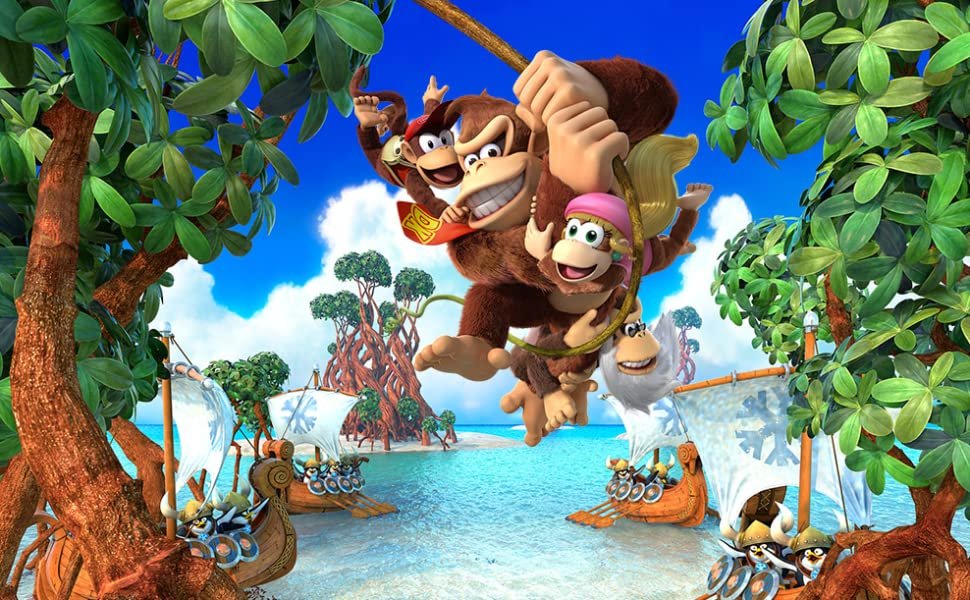What does Zelda’s £60 price increase mean for Nintendo?
Ever since the release of the Nintendo Switch, Nintendo has kept a rather strict price cap of £50 on new releases. Ranging from Super Mario Odyssey to Pokemon Scarlet/Violet, every single big AAA first-party release on the Switch has kept to this model- until now. Leaking a couple of hours before last week's Nintendo Direct, it was revealed that the highly anticipated sequel to Breath of the Wild, Tears of the Kingdom, will be launching for an RRP of £59.99
This £10 price increase isn't too much of a surprise considering the steady markup for hardware and software within the games industry over the last six months. With Xbox increasing the price of first-party games and PlayStation bumping up the price of the PS5, Nintendo naturally decided to follow suit. However, there are a couple of factors that have made fans angrier and more confused than other, similar announcements. Firstly, the Switch is a hybrid console- which means it sacrifices power for portability. While a great feature, it should also weigh down the price considering you're getting a compromised experience compared to the big home consoles of Microsoft and Sony. While Tears of the Kingdom is Nintendo's biggest game in years, the fact is that it will be a less technically impressive game compared to what gamers have come to expect since the introduction of the modern home consoles in 2020. This has led many to wonder whether the markup is really justified.
The other big factor that goes against this pricing decision is the age of the Nintendo Switch. Releasing in 2017. Nintendo's hybrid console is coming to the end of its sixth year on the market- leading many to believe that 2023 will be the last full year of the Switch. While Nintendo has made it clear that they plan to Switch for years to come, there is a natural ending point for a console's life. By today's standards (and even by the standards of a couple of years ago), the Switch is very underpowered and it would make a lot of sense for 2024 to be Nintendo's next big leap in hardware. Whether that's to be a Switch 2 or something else entirely is let to be seen- but it does bring in the question of price. While we've become used to big £60 releases for the PS5, the hardware for that console is comparatively much shinier than the aging Switch. If another console is set to be coming so soon, why not wait until that one release instead of pushing a price increase in the final year of a console's lifespan? Well, taking a look back at Nintendo's pricing history may shed some light on that.
While this isn't too big of a shock if you're a long-time Nintendo fan, games on the Nintendo Switch have been unnecessarily expensive. Now, this isn't referring to brand-new games because frankly. £50 for a new release is a fair deal in 2023. Instead, this is talking about the tremendous markup for ports to the Nintendo Switch. Whether they come from other consoles or Nintendo's previous console. the Wii U, each game ported seems to jump up in price so much, it has become known as the Switch tax. One example of this bizarre price increase is the recent Pikmin 3, which was released for £40 on the Wii U in 2013, and you can pick it up now for around £10 pre-owned. When the same game with a couple of additions was released on the Switch in 2021, it was £50. For a similar example, Kirby's Return to Dream Land Deluxe (a Wii game) is coming to the Switch later this month for, again, £50. A bump in price is nothing new for Switch owners- but the £60 price announcement of Tears of the Kingdom is taking it too far for fans.
Nintendo has released a statement claiming that the price point for Tears of the Kingdom is not reflecting a complete overhaul of new game prices on the Switch- meaning most new games will remain at the original £50 RRP. So then why is Tears of the Kingdom really this much? The simple answer (and the one being echoed throughout the internet) is simply that they can get away with it. A new Zelda game will always sell- regardless of the price point. If this game was £100, Nintendo would probably still be able to make as much money as if it was £50. The point is that £10 doesn't seem to be a big price bump for most people, which means the majority will just fork over the extra cash anyway. This therefore barely impacts sales numbers while rocketing the net sum Nintendo makes for each game sold. Nintendo is a business, of course, and its main motivator is money. On top of this, Tears of the Kingdom may just be the company's most ambitious game since the original Breath of the Wild in 2017. Nintendo intends to double down on the profitability of Zelda- and it's a strategy that is almost certain to work.
Whether it's true that most Switch games will really stick to £50 or follow suit with a bump after the experimental £60 price strategy remains to be seen. Regardless, if Nintendo really is planning to release a successor to the Switch next year, we'd better get used to the idea of a £60 first-party Nintendo game- and fast.





